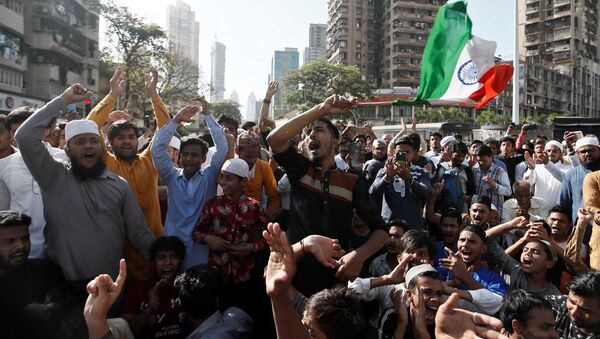Hundreds of anti-Citizenship law protesters gathered outside Madras High Court demanding resolutions against the amended law which grants Indian citizenship to non-Muslim six religious minorities from Afghanistan, Bangladesh and Pakistan who entered India before 2015.
The protestors include non-political Islamic organisation Tamil Nadu Towheed Jamath members.
The move defies the government’s request to not hold gatherings or protests in the wake of the coronavirus outbreak which has claimed three lives with 150 positive cases across the country.
In a video shared by Indian news agency ANI, several hundred people can be seen blocking the road outside the Madras High Court despite heavy policing.
“Tamil Nadu Thowheed Jamath”
— Vibhuti Singh (@VibhutiSinghIND) March 18, 2020
members still continue their protest while country is Under #CoronaVirus threat.
ये वही तौहीद जमात संगठन है, जो ज़ाकिर नायक के इशारों पर चलता है
जिसके आतंकवादी इमाम“जहरान हाशिम” ने श्रीलंका में बम विस्फोट करवाया था#Chennai
pic.twitter.com/OAQM3U7pJg
Towheed Jamath, the organisation which allegedly conducted bomb blasts in Sri Lanka last April, has been leading the protests against the Citizenship Law (CAA) across Tamil Nadu state.
According to the protesters, they want the Tamil Nadu government to pass a resolution which states that the CAA will not be implemented in the State.
Enacted in December 2019, the CAA grants citizenship to Hindu, Sikh, Christian, Buddhist, Jain, and Parsi illegal immigrants from Pakistan, Bangladesh, and Afghanistan.
The law, however, sparked violent protests across India for allegedly discriminating against Muslims, who form a 200-million-strong minority in the secular country.
The government of Prime Minister Narendra Modi has said that no Indian citizen would be affected by the law as it “seeks to grant citizenship, not snatch it”.




